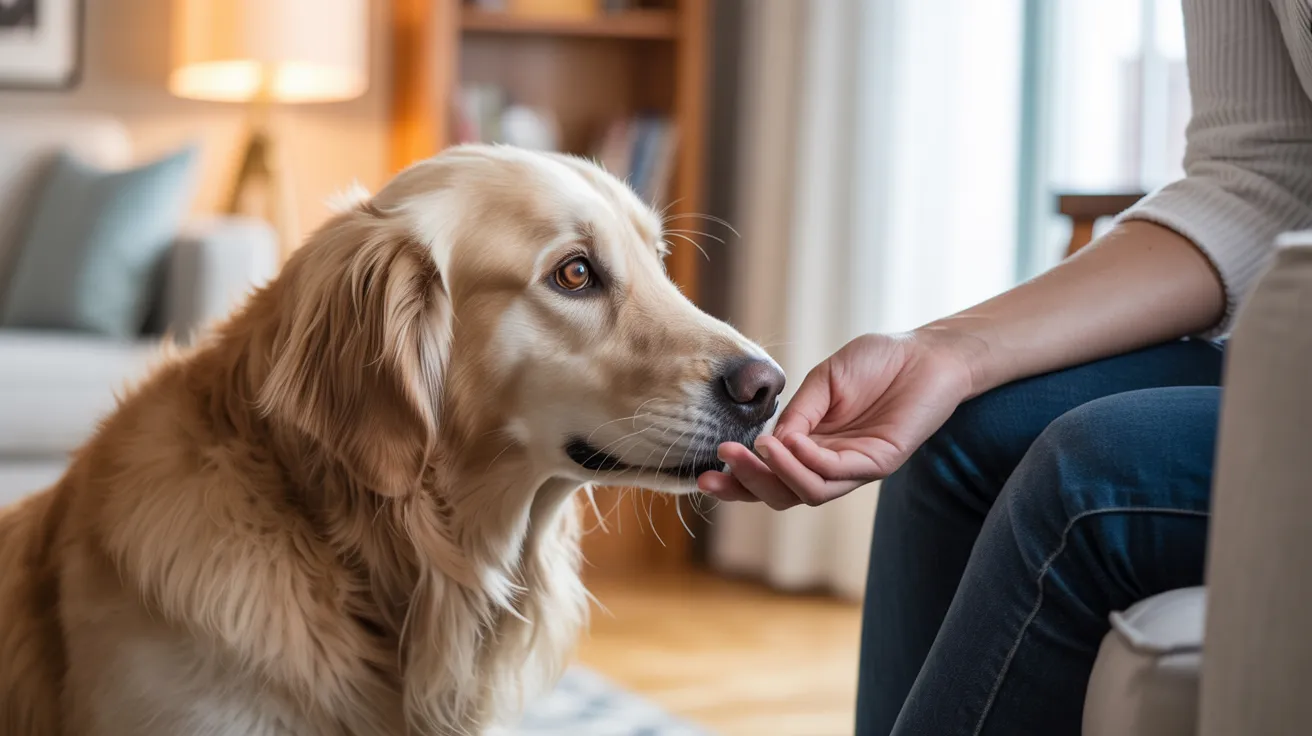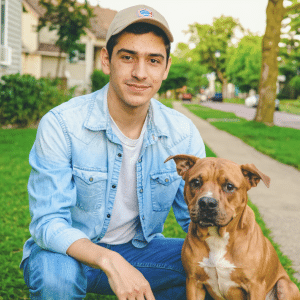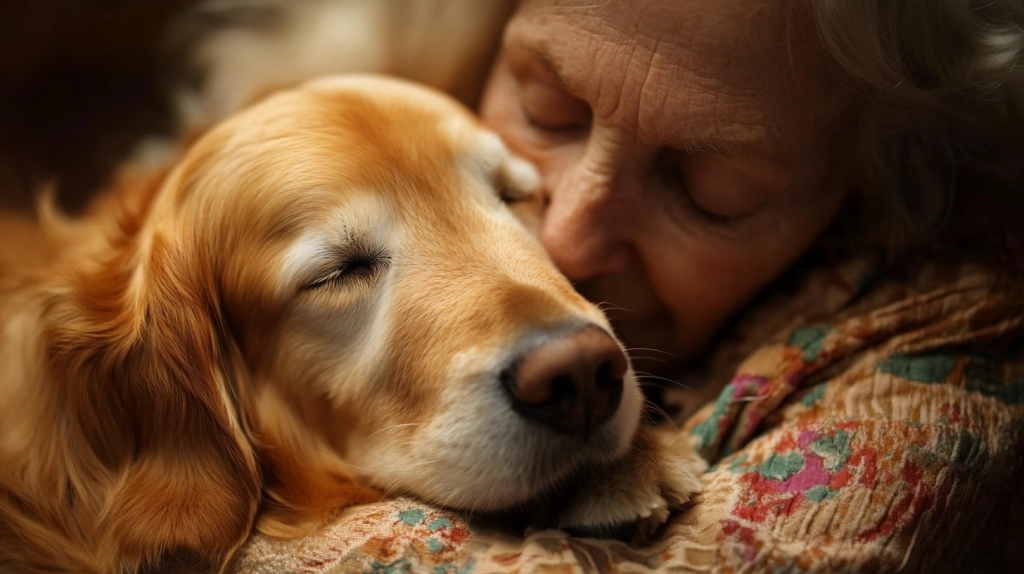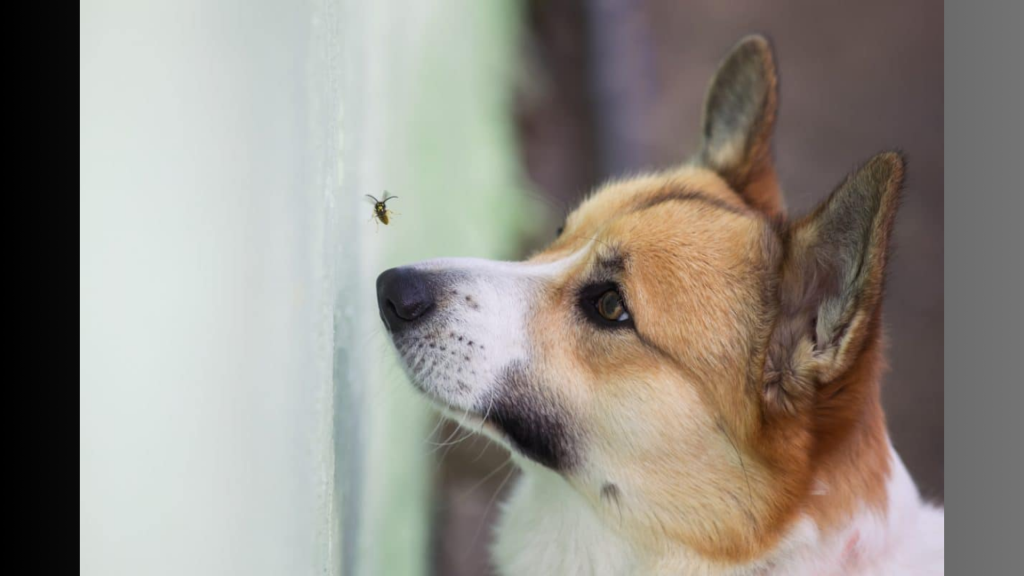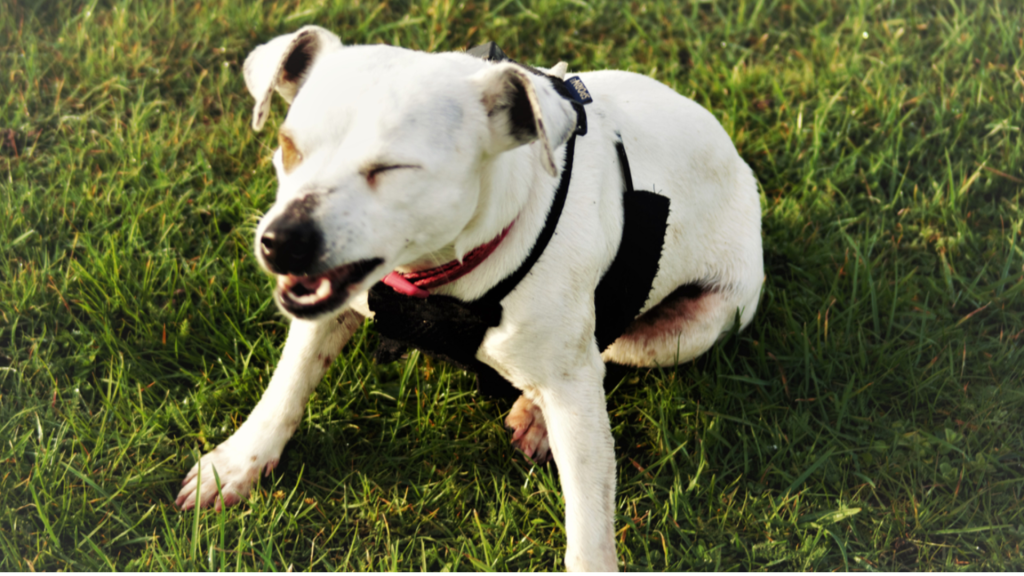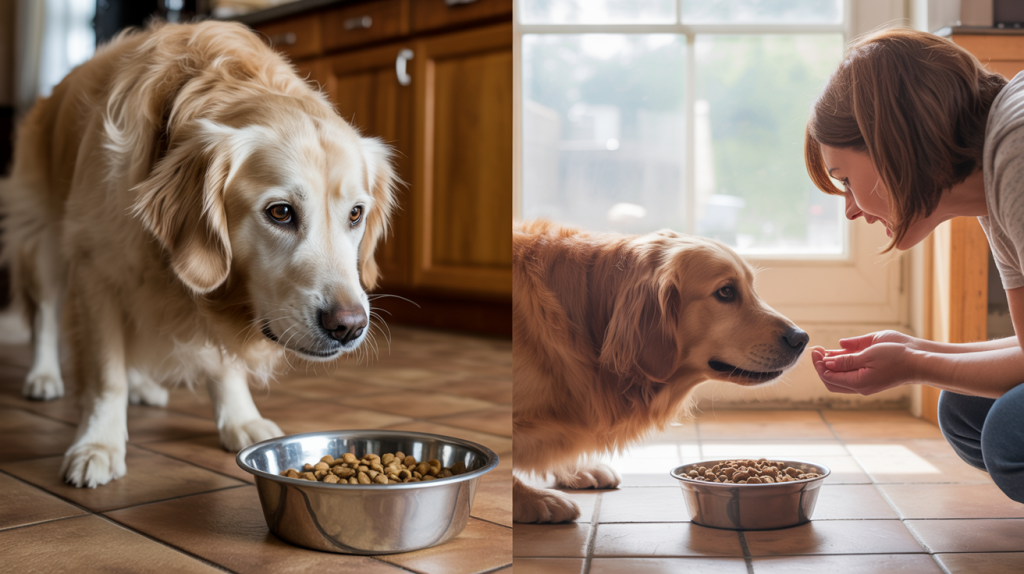Most dog owners have noticed their furry friend acting differently when they’re under the weather. The dog suddenly becomes extra clingy, won’t leave their side, or seems to sense something’s wrong before anyone else does.
This common experience makes many pet parents wonder: Does my dog know I’m sick?
The answer is both interesting and scientifically backed. Readers will learn about their pet’s super-sensitive nose, the specific signs dogs show when they detect illness, and the science behind this incredible bond.
By the end, dog owners will understand if their four-legged companion can become a devoted caregiver during times of illness.
Does My Dog Know I’m Sick?
The short answer is yes – your dog probably knows when you’re not feeling well. Dogs have special abilities that help them figure out when their owners are sick, even before the owners realize it themselves.
When dogs sense illness, they often become extra loving and protective. They might follow you around more than usual, lie closer to you, or bring you their favorite toys.
Some dogs become calmer and less demanding of walks or playtime. Dogs can detect serious illnesses, such as cancer and diabetes, through their sense of smell alone. They can even sense when seizures are about to happen.
Your dog’s ability to know when you’re sick comes from years of living with humans. This special bond helps them understand and care for their loved ones.
How They Know:
- Scent changes – Your body releases different odors when sick
- Behavior shifts – They notice when you move slower or rest more
- Voice changes – Dogs hear differences in how you sound
- Emotional cues – They sense your mood and energy levels
Your dog doesn’t need special training to pick up on these signals. Their natural abilities help them understand when something is wrong with their favorite person.
How Dogs Sense When You’re Sick
Dogs have an incredible sense of smell, much stronger than humans. When you’re sick, your body goes through changes.
You might give off different scents through your breath, sweat, or skin, even before you notice you’re not feeling well. Dogs can smell these tiny changes and may realize something is wrong before anyone else does.
Dogs are also very good at watching your behavior. If you move slower, rest more, or skip your usual activities, your dog will notice.
They pay close attention to your routines, so when you act differently, they pick up on it right away.
Dogs are sensitive to your feelings, too. If you’re sad, worried, or in pain, your dog can sense it from your voice, face, and the way you act. That’s why many dogs become extra cuddly or protective when you’re not feeling well, they want to comfort you.
Some dogs are even trained to detect certain illnesses, like low blood sugar or seizures, just by using their noses. This shows how amazing their senses really are.
So, does my dog know I’m sick? Yes, because they’re using their super senses to care for you!
Common Illnesses a Dog Can Detect
Dogs have an amazing sense of smell that allows them to detect a range of health problems in people. Here are some of the most common illnesses dogs can sense:
- Cancer: Dogs have been trained to sniff out cancers like skin, lung, breast, and even bladder cancer by detecting unique scents given off by cancer cells.
- Diabetes: Some dogs can alert their owners when blood sugar levels are too high or too low, often before the person feels any symptoms.
- Infectious Diseases: Dogs have shown they can detect certain infections, including bacteria like Clostridium difficile and even viruses, by smelling samples of breath, sweat, or urine.
- Seizures: Some dogs can sense when a seizure is about to happen, possibly by noticing changes in scent or behavior, and can warn their owners in advance.
- Parkinson’s Disease: Research suggests dogs can pick up on early scent changes in people who are developing Parkinson’s, sometimes before symptoms appear.
Thanks to their powerful noses, dogs are becoming important helpers in medical detection, sometimes even spotting problems before doctors or tests can.
How Do Dogs React to Human Illness?
When dogs sense their owner is unwell, they show specific behaviors that demonstrate care and concern.
Understanding these reactions helps answer the question, “Does my dog know I’m sick ?” and reveals the deep bond between pets and their owners.
Increased Affection and Closeness
Dogs often become extra cuddly when their owners feel sick. They may follow you around the house, lay closer than usual, or rest their head on your lap for comfort.
Protective Behavior
Some dogs become more alert and protective around sick owners. They might position themselves between you and visitors, or stay watchful while you rest to guard against potential threats.
Calmer Energy Levels
Dogs typically match their owners’ energy when illness strikes. They may request fewer walks, play less actively, or seem more patient than usual during their daily routines.
Attention-Seeking Actions
Many dogs try to get their sick owner’s attention through gentle pawing, soft whining, or bringing their favorite toys. These behaviors show they want to help, but don’t know exactly how.
Constant Monitoring
Dogs often watch their sick owners more closely than normal. They may check on you frequently, following you from room to room to ensure you’re okay and safe.
How Dogs Help Their Owners Recover from Illness
Dogs don’t just sense when their owners are sick, but actively help their owners during the recovery process. When pet owners wonder, ” does my dog know I’m sick ?” the answer becomes clear through their helpful healing behaviors.
- Emotional Support: Dogs provide comfort as their presence reduces stress hormones and helps owners feel less alone during illness. Simply petting a dog can lower blood pressure and improve mood.
- Encouraging Rest: Many dogs become calmer when their owners are sick. They sleep nearby and don’t demand as much attention or exercise. This natural behavior helps sick owners get the rest they need to recover faster.
- Routine Maintenance: Dogs help maintain daily structure even when owners feel terrible. They still need basic care like feeding and bathroom breaks. This gentle routine keeps sick owners moving and engaged with life.
- Physical Warmth: Dogs naturally provide body heat when they snuggle with sick owners. This extra warmth can be especially comforting during fevers or chills. Their soft fur and steady breathing create a soothing presence.
Fun Facts About Dogs’ Super Senses
-
Smell in 3D: Dogs use each nostril independently to track the direction of a scent.
-
Super Sniffers: A dog’s nose is up to 100,000 times more powerful than a human’s.
-
Mega Hearing: Dogs hear sounds four times farther than humans and up to 65,000 Hz.
-
Whisker Radar: Their whiskers detect tiny changes in air currents, helping them “feel” the environment.
-
Emotion Detectors: Dogs can literally smell your stress, fear, or happiness.
-
Disease Detectives: Some dogs can sniff out cancer, low blood sugar, and seizures.
-
Color View: Dogs don’t see in black and white — they see blues and yellows, like red-green colorblind humans.
-
Natural Disaster Warning: Dogs often act strangely before earthquakes or storms — they may sense pressure changes.
-
Born Without Sight or Sound: Puppies are born blind and deaf, but their senses grow fast.
-
Nose Prints Are Unique: Every dog has a one-of-a-kind nose print, just like human fingerprints!
Conclusion
Dogs possess remarkable abilities to detect when their owners are sick through their powerful sense of smell and keen observation skills.
This isn’t just a pet owner’s wishful thinking – it’s backed by real science and countless personal experiences.
The bond between humans and dogs runs deeper than most people realize. They offer emotional support, encourage gentle activity, and provide the kind of healing presence that medicine alone can’t deliver.
Have you noticed your dog acting differently when you’re sick? Share your experience in the comments below – your story might help other dog owners understand their pets better.



